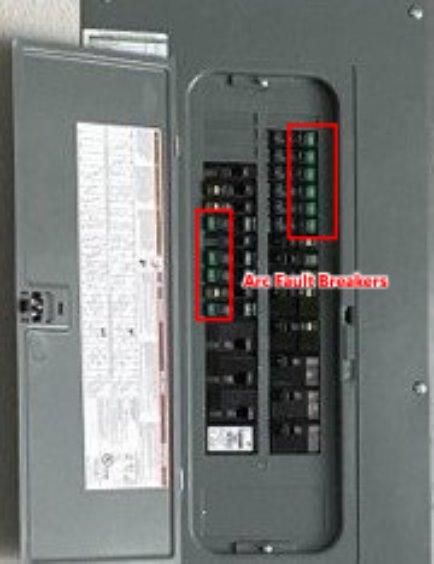Arc Fault Circuit Interrupter Explained

An Arc Fault Circuit Interrupter (AFCI) is an electrical safety device designed to detect and mitigate the risk of arc faults, which can lead to electrical fires. AFCIs monitor the electrical current flowing through a circuit and are designed to interrupt the circuit if an arc fault is detected, thereby reducing the risk of fire.
If you are purchasing a home that was built before AFCIs were required by local building codes, it is possible that the home does not have them installed. The requirement for AFCIs has been gradually introduced in building codes over time, so older homes may not have them unless they have undergone electrical upgrades or renovations.
During a home inspection, the inspector may mark the absence of AFCIs as deficient because modern building codes typically require AFCIs to be installed in certain areas of the home, such as bedrooms and living rooms. The purpose of the inspection is to assess the overall condition and safety of the property, and inspectors typically look for compliance with current building codes and safety standards.
While AFCIs may not have been required when the home was built, it is generally recommended to have them installed for enhanced electrical safety. Arc faults can still occur in older homes due to aging electrical systems or other factors. Therefore, it is advisable to consult with a qualified electrician to evaluate the electrical system and discuss the potential benefits of installing AFCIs or other safety upgrades.
Keep in mind that AFCI outlets are not required in older homes unless the electrical system has been updated. So, when your home inspector suggests upgrading to AFCI receptacles, please know that he has your safety in mind. AFCIs are considered essential safety features, and having them installed can provide added protection against electrical fires caused by arc faults.





